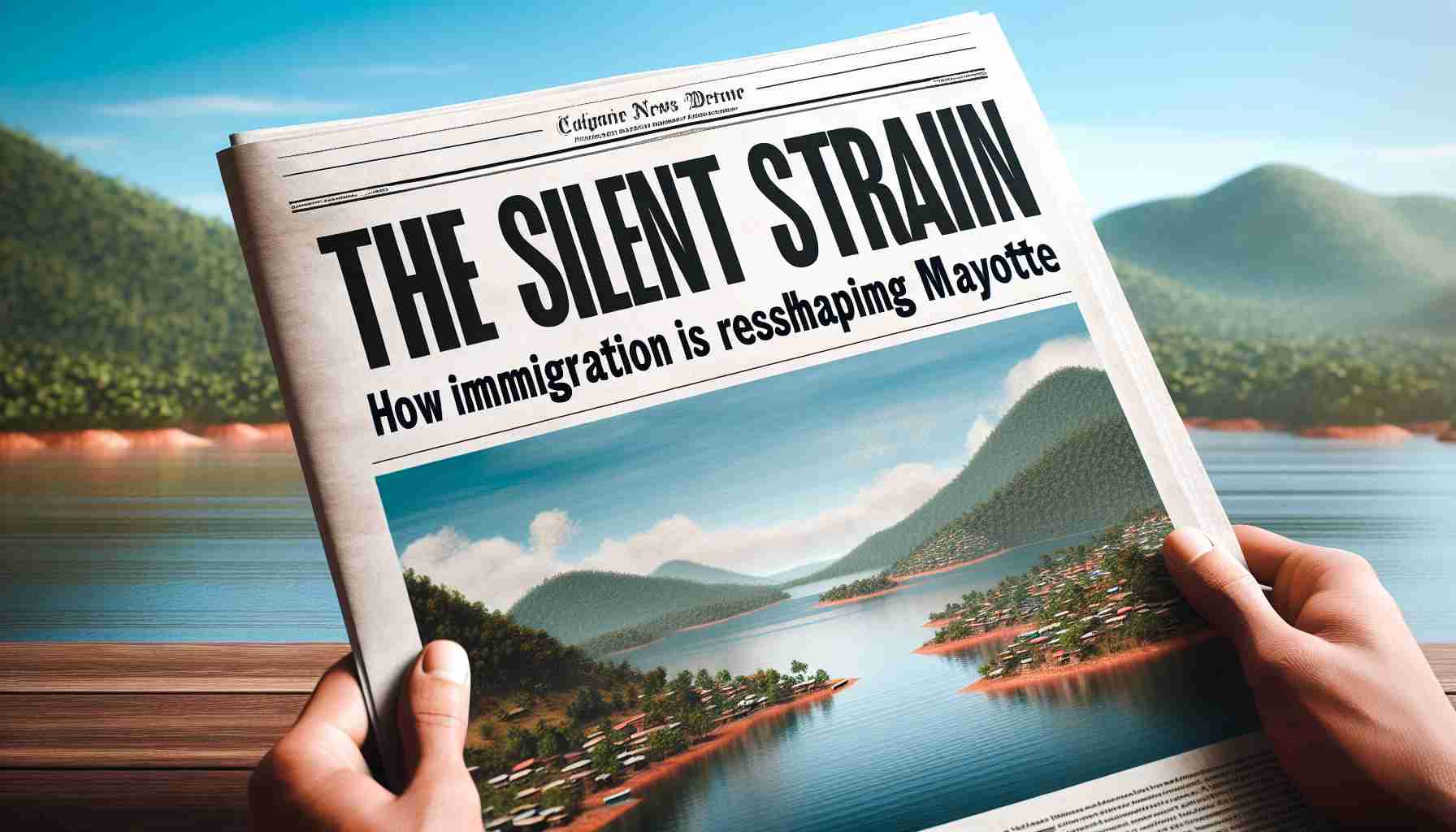- Mayotte, a French overseas department, faces ongoing tension due to significant immigration, primarily from the Comoros, driven by economic motives.
- Despite French investments in infrastructure, the island struggles with overcrowded clinics and schools, highlighting a paradox where development attracts more immigrants and strains resources.
- Alain Destexhe, with humanitarian expertise, explores the societal transformation underway in Mayotte, capturing its complex tapestry of hope and despair.
- Gil Mihaely contextualizes Mayotte’s challenges within wider geopolitical dynamics, noting its strategic importance amidst global powers like China.
- Mayotte underscores the need for immigration policies that balance compassion with sustainable resource management to avoid exacerbating crises.
Nestled in the turquoise embrace of the Indian Ocean, Mayotte—a French overseas department—appears idyllic at first glance. Yet beneath the surface, the island pulses with tension, orchestrated by waves of immigration from the Comoros and beyond. Alain Destexhe, a seasoned observer of human landscapes, examines this turmoil in his latest work, capturing the essence of a society on the brink of transformation.
As a former leader at Médecins Sans Frontières, Destexhe brings a keen humanitarian lens to the crisis. Despite substantial French investments, from roads to schools, the island grapples with an influx driven by economic motives, not asylum. In Mayotte, glistening new construction stands side by side with the strains of overcrowded clinics and classrooms, threading a complex tapestry of hope and despair. The island’s dilemma underscores a haunting paradox—how prosperity intended to aid the local population inadvertently attracts more newcomers, stretching resources to their limits.
Gil Mihaely expands on this narrative, threading Mayotte’s predicament into a broader geopolitical fabric. As France navigates its role in the Indian Ocean, the island becomes more than just a local crisis; it is a pawn in a game where global powers like China stake their claims. The island’s path forward may well influence France’s strategic influence in the region.
Mayotte’s story serves as a critical reminder: immigration policies must balance humanitarian compassion with sustainable resource allocation. Without this equilibrium, even well-intentioned developments risk unravelling under the weight of unchecked pressures, leaving Mayotte a microcosm of challenges faced worldwide.
The Hidden Struggles of Mayotte: Immigration, Growth, and Global Strategy
How-To Steps & Life Hacks for Sustainable Development
1. Community Engagement: Engage local leaders and community associations in decision-making processes. By involving Mayotte’s population in discussions about immigration and infrastructure projects, programs will more adequately reflect the community’s needs.
2. Resource Allocation Models: Implement data-driven models to predict and allocate resources efficiently. These models can use historical data on immigration flows, healthcare utilization, and educational enrollment to better distribute the available infrastructure investment.
3. Cultural Integration Initiatives: Promote educational programs that emphasize understanding and integration among different ethnic and cultural groups in Mayotte. Schools can host multicultural events, and organizations can facilitate dialogue between communities to ease tensions.
Real-World Use Cases and Industry Trends
– Mayotte’s complex situation is not isolated. Many islands and small nations face similar challenges with immigration and resource allocation. This highlights a trend in geopolitical strategy where small regions become pivotal points for larger powers. Countries like Malta and Cyprus have also experienced similar pressures, underscoring the need for robust international policy cooperation.
Reviews & Comparisons
– Comparing Mayotte to other French overseas departments, such as Réunion or Guadeloupe, reveals significant differences in immigration trends and economic pressures. While Réunion benefits from its larger size and established infrastructure, Mayotte faces ongoing challenges due to its rapidly increasing population density and limited resources.
Controversies & Limitations
– There is ongoing debate about whether French investments are being effectively managed in Mayotte. Critics argue that without a clear roadmap for sustainable growth, infrastructure improvements may only provide temporary relief. Policies may inadvertently exacerbate socioeconomic divides if not handled with a nuanced approach.
Market Forecasts & Industry Trends
– The Indian Ocean region is witnessing increased strategic interest from global powers. Over the next decade, expect a rise in infrastructure investments as countries like China and India seek greater influence.
Security & Sustainability
– Investing in eco-friendly infrastructure can mitigate some of the environmental strain caused by population growth. Developing renewable energy sources and sustainable housing could serve Mayotte’s needs while minimizing the ecological footprint.
Pros & Cons Overview
Pros
– French investment leads to enhanced infrastructure and better public services.
– Mayotte’s location offers strategic geopolitical significance.
– Diverse cultural landscape enriches community life.
Cons
– Overpopulation strains local resources and services.
– Sociopolitical tensions could lead to unrest.
– Dependence on French aid may hinder local autonomy and sustainability.
Actionable Recommendations
1. Immediate Infrastructure Improvements: Focus on critical sectors such as healthcare and education to quickly bring relief to overcrowded facilities.
2. Policy Reforms: Encourage France and Mayotte’s local governments to reassess immigration policies to balance growth with sustainable development.
3. Enhanced Security Measures: Implement strategies to safeguard resources while fostering an inclusive society.
For more on how countries navigate their overseas departments, visit the French government website here.
Conclusion
The Mayotte crisis is a microcosm of global challenges in immigration and resource management. By implementing strategic, community-based solutions and fostering international cooperation, the path forward can balance growth with sustainability.
